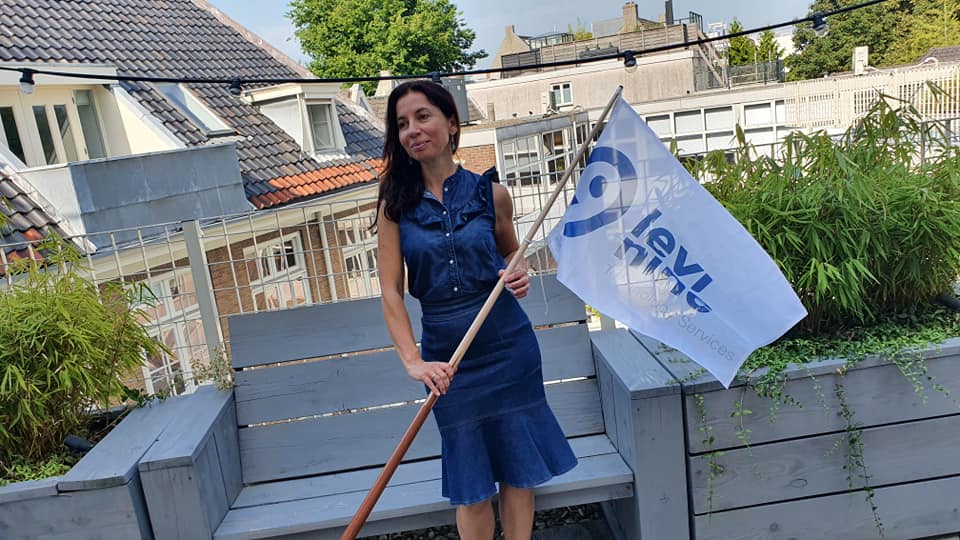The position of department manager (DM) is common in IT, but such a specialist can be found in all industries and areas: from production to marketing. At the same time, such specialists have different tasks in each company, and even at the interview stage, the requirements for them vary. In this article, Viktor Karakash, Department Manager at Levi9, explains what a department manager is, what they are responsible for, and how to become one.
Role and responsibilities of a department manager
According to the standard position description, a department manager controls the productivity and daily work of their department: from a small team of several people to a department of hundreds of specialists. For example, at Levi9, a department manager is responsible for specialists in one area. I personally supervise a group of seven Java programmers. They all have different backgrounds and projects; the only thing they have in common is the technology stack they use. I work in Java myself, but this is not a decisive factor for the DM position, because departments can be formed not by technology, but by project areas or other criteria.
A department manager accompanies the members of their department throughout their entire employment with the company: from setting requirements for a candidate and participating in the hiring process to the moment a person leaves the company. DMs are not directly involved in their colleagues’ operational work. Their role is to advise and assist in development, discuss problems that arise in the process, and advise on how to solve them.
Like any manager, a DM guides team members in the right direction. In this way, their work is similar to mentoring, but more comprehensive, for a group of specialists. They help each individual and the team as a whole: he points out areas of growth, creates a development plan and guides their team members. The level of involvement in the work of colleagues depends on their experience and individual needs. For example, for a junior, it can be a full-fledged assistance with a training plan, while in the case of more experienced colleagues, it is more about helping them find motivation to work on themselves.
Department manager and team Lead: What's the difference?
The position of a department manager may seem close to a team lead, but it is not. A department manager is usually not tied to specific projects, does not contact the customer, does not evaluate tasks, and is not responsible for resource allocation. They are a structural unit of the company and is responsible for a certain part of its specialists. A team lead is part of a project team. Their responsibilities may vary from company to company, but the work of a team lead always involves project development and often mixed teams.
Portrait of a department manager and their working day
Often, department manager is not the main position, but additional responsibilities that are usually taken on by a Senior+ specialist. At the same time, they continue to perform project tasks and develop in a particular technology stack. For example, I am still involved in technical development and simultaneously perform the role of DM. Most of my working day is devoted to tasks on client projects that I continue to work on as a developer. But direct DM duties (one-on-one meetings, ongoing communication, interviews, statuses with other managers and the talent team) take up about 10% of my time. At the same time, they are often unevenly distributed: one week I must allocate an hour for them, and the next week it’s three.
Given the responsibilities, a DM must be a comprehensively qualified expert: able to create a program, make sure that the function is written correctly, and draw up a development plan for colleagues. It is impossible to achieve this without experience in the profession, so specialists who have worked in the IT industry for at least 5 years are mostly considered for this position. Even though in general, according to DOU analytics, about 27% of managers in the IT market have 3 to 5 years of experience. As for compensation: while a Senior Developer earns an average of $4,700 (the level of remuneration depends on the complexity of the programming language, project, additional skills, and other related factors), a department manager can claim higher compensation due to the greater scope of responsibilities.
Challenges of being a department manager
Being able to share your experience and help others gives you a sense of the importance of what you do. This is an easy and pleasant part, but there is another side: you must evaluate colleagues and, accordingly, remain objective, help the team set goals correctly, and participate in the review of remuneration and bonuses.
Another challenge is evaluating the performance of colleagues from other projects. This is where feedback from other colleagues, managers, and clients comes in handy. The DM’s feedback is only a small part of it, based on the implementation of the development plan, the issues that concern the specialist, and the cases we discuss.
Giving reasoned feedback so that the specialist accepts your opinion, you come to an agreement and move in the same direction together is difficult and not always possible, but this is what distinguishes a mediocre manager from a strong leader.
How do you become a department manager and grow in your position?
I started my career as a department manager in project development at Levi9. Later I started coordinating the team, and at some point, I wanted to try my hand at management. I moved towards my goal step by step: at first, I communicated with managers of different areas, attended leadership pieces of training and workshops, thanks to which I gained a theoretical understanding of the work. And then I worked as a deputy department manager for several months, which gave me the opportunity to compare expectations with reality and understand how well my responsibilities fit me. The process of becoming a manager went smoothly – only with experience do you begin to better understand how to optimally distribute time between different activities.
To become a department manager, you need to be a strong developer, be able to manage time and resources (both your team’s and your own) and keep several processes in focus at the same time. In addition to the obviously necessary technical knowledge, which differs depending on the industry and company profile, it is also important to have soft skills: to be communicative, able to formulate opinions and resolve conflicts. These are the things that any senior-level technical specialist needs, as he or she must be a leader and lead the team.
There are plenty of development options for a department manager. You can become stronger as a technical expert or as a manager: take care of a larger team or try yourself in a different technological area. Or you can drastically change the vector and move, for example, to non-technical management, to become a delivery manager. The main thing is to have a desire to learn new things and grow as a professional and a person. You need to develop your skills and IT expertise all the time. That’s why I still often participate in technical conferences and take courses that are relevant to the technologies and areas I work with.
To summarize
To briefly describe the essence of a department manager’s work, I would say: “Help in the search”. They can be approached with anything, and you should be prepared for this. For example, a DM should have information about the company’s processes, and know what to do in a particular case or whom to contact to find out.
In the context of professional development, he or she should help another specialist understand how to develop better, create a Personal Development Plan (PDP) with him or her and monitor its implementation, and to do this, constantly monitor the progress and growth of the specialist in the team. If necessary, help them change the project, encourage them to prove themselves, give a presentation, join internal initiatives in the company, find like-minded people to implement a new idea, etc. Often, beginners are unsure of their abilities, while more experienced people want to grow faster but don’t know how. Support from the department manager, honest and high-quality feedback, coaching and mentoring can usually help – not only in the professional sphere, but also in finding yourself.










